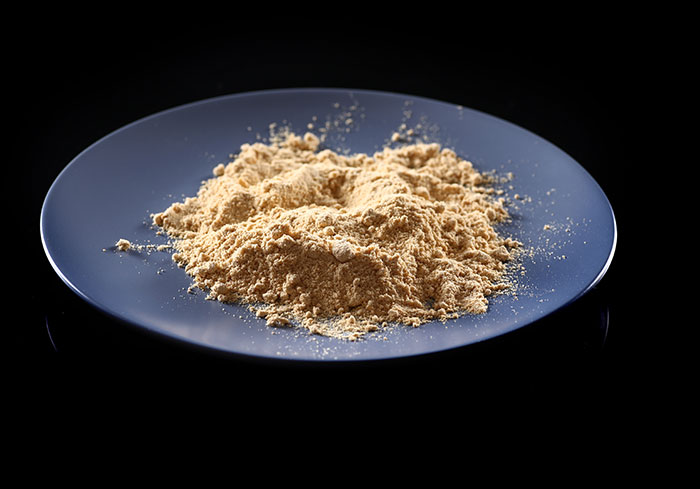Chemical Properties Of Hydrolyzed Soya Lecithin Liquid For Foods
Published on Apr. 28, 2019
1. Oxidation
In theory, Hydrolyzed Soya Lecithin Liquid For Foods and cephalin are white waxy solids, and powdered phospholipids are milky white powder. In actual production, a small amount of impurities such as glycolipid and soybean oil are often present, but orange or brownish yellow. Since the molecule of phospholipid contains a large amount of unsaturated fatty acid, it is easily oxidized by oxygen in the air, and the oxidized phospholipid becomes brownish black, and has a pungent scent, which is bitter and toxic.
2, heat sensitivity
All phospholipids are not resistant to high temperature, and the rate of oxidation is accelerated with the growth of temperature. At about 80 °C, the color of phospholipids can be significantly deepened in a relatively short period of time; the rate of oxidation of phospholipids above 117 °C is significantly accelerated and begins to decompose; Phospholipids coke at °C, producing a black precipitate.
3, water absorption
Food Industries Soya Lecithin Powder are hardly soluble in water, but they are easy to absorb water and swell to a colloid after absorption. Lecithin is soluble in certain organic solvents, but different phospholipids have different solubility in different solvents. For example, lecithin and cephalin are both soluble in ether and insoluble in acetone and ethyl acetate. Lecithin is soluble in ethanol and phosphatidyl is insoluble, so lecithin and cephalin can be separated. Sphingomyelin is dissolved in hot ethanol. All phospholipids are insoluble in acetone, so it is also called acetone insoluble matter. It refers to total phospholipids. content.
4, emulsifying
The phospholipid molecule contains a lipophilic fatty acid group and a hydrophilic phosphate group, and has excellent emulsifying properties and is a natural emulsifier. For example, in a container filled with water, add a little vegetable oil. At this time, the oil and water are not soluble. No matter how you stir or homogenize, by standing, the oil is separated from the water, and the accumulated oil layer floats up and forms with water. Apparent upper and lower layers; when adding proper amount of phospholipids, by homogenization, the phospholipids will be wrapped in the form of a film on the surface of the oil and combined with water molecules to form an emulsion. At this time, the phospholipids seem to have two hands and one hand ( The fatty acid group) grips the oil molecules, and the other hand (phosphoric acid group) grips the water molecules. Therefore, the soybean phospholipid has excellent emulsifying properties.



